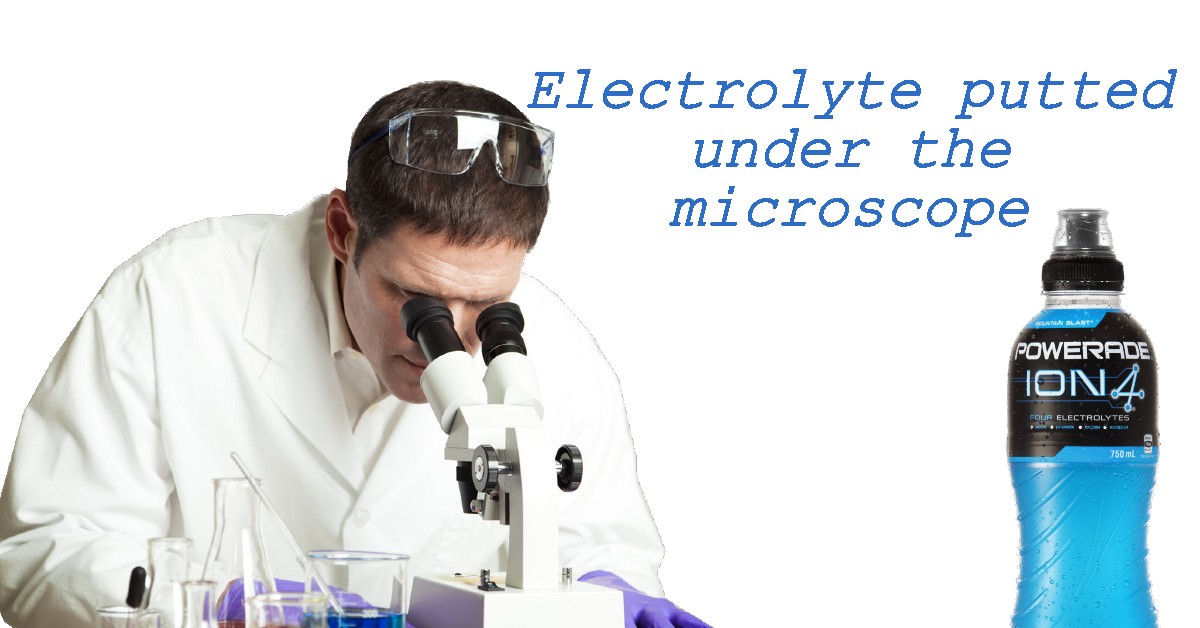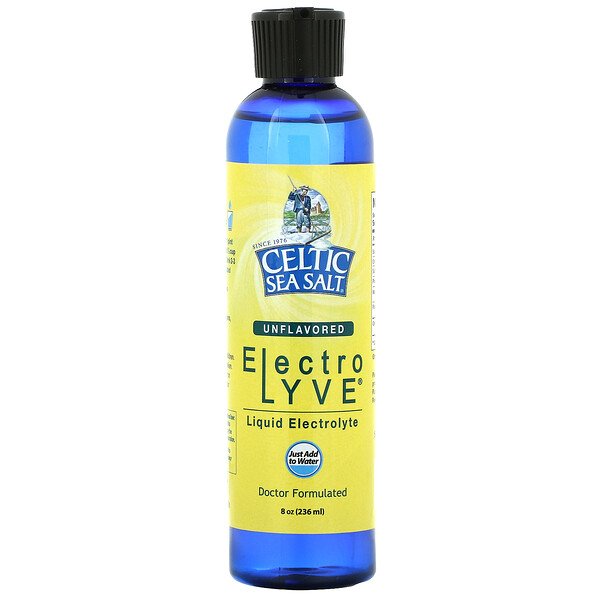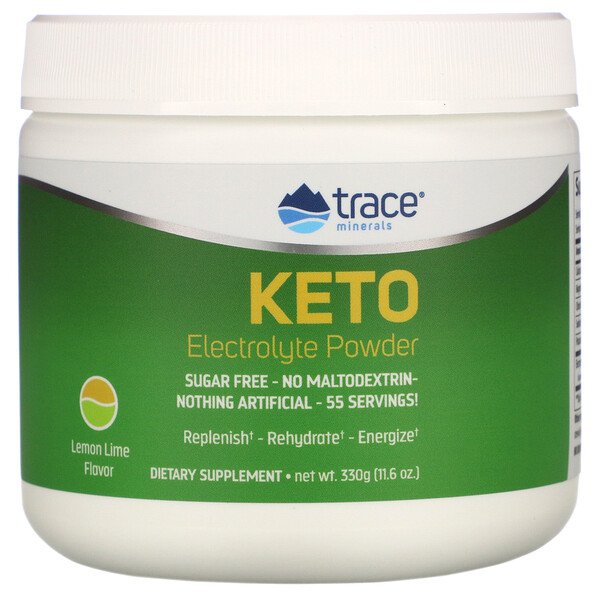Electrolytes
Whenever you have a stomach flu, one of the first things a doctor tells you to get is an energy drink containing electrolytes. But here is the question; is it something that would be prescribed by a doctor for a diabetic? Considering that some of these drinks contain a large amount of sugar, the answer would be no. However, not all energy drinks are made equal. So there has to be an alternative.
Vitamin Water electrolytes
Vitamin Water (bottled water with electrolytes) offers a wide range of energy drinks, which is normally packed with sugar for the upkeep of expenditure of athletes. But lucky for diabetics, Vitamin Water has realized that they need to cater for a wider range of people. Many has asked them for an alternative so that they too can still enjoy the drink without all the sugar in it. Vitamin Water came up with the perfect solution by creating a zero sugar alternative. Not only are they packed with electrolytes, but they also contain high levels of antioxidants that help to combat free radicals.
Smart Water electrolytes
Smart Water already uses a condensation method to make their water, which has purely balanced pH. This automatically introduces electrolytes into the bottled water. To further enhance the taste, they ionize the electrolytes to bring out the potassium, calcium, and magnesium. Since it is pure water, this creates the perfect drink for diabetics. They are proud to advertise that their product contains no sugar, is sodium and gluten free, contains no fluoride, has no artificial flavours or colouring, and has no GMOS. But what about their Clarity range? It is still safe for a diabetic to enjoy this crisp and delicious bottle of water, as it uses elevated ginseng and green tea extracts.
Powerade
This drink used to be taboo for diabetics, as it contained high levels of sugar. Although it also contained high levels of electrolytes, it was simply not an option for diabetics. Yet again, this company realised that they were, in a way, ostracizing a large portion of their potential clients by not offering an alternative. On their website they explain the importance of electrolytes, and how it is made up of four different types. Sodium, potassium, calcium, and magnesium. The sodium and potassium helps you to retain fluid in order for you to stay hydrated, whilst also maintaining blood volume, muscle blood flow, and sweat rate. But we’re getting off topic here. How can a diabetic enjoy these benefits if the sugar content prevents them from drinking it? Well, Powerade bottled water with electrolytes came up with a solution for that by also introducing a Zero Sugar alternative. But there were questions about whether it was truly sugar free, since it still had the same taste as its sugar-loaded cousin. It was confirmed that it is indeed sugar free, and that it contains no sugar, corn syrup or any other sweetener. Instead they use artificial sweeteners such as sucralose and acesulfame K.
Hematic food decided to put Powerade drink to the test and find out how it is going to affect the blood condition and if it is ok to drink Powerade drink if you have diabetic or pre-diabetic condition.
Does orange juice have electrolytes?
There are so many fruits that contain electrolytes! Before we get to orange juice, let’s take a look at some of the other fruits which you can turn to just in case you don’t have access to orange juice. Coconut water or coconut juice is now in bottled water form because of its high volume of electrolytes. It is also naturally low in calories and sugar, so it is best to read the label before downing a bottle of this delicious drink.
Next up on the list is quite a shock to many people. Milk. Yes, milk. It is rich in electrolytes, and at a fraction of the price of commercially sold energy drinks. Research has also shown that milk is, in fact, a better post-workout beverage. Plus you get to choose from whole, low-fat or skim milk, depending on what you personally prefer. You can also follow the route of lactose free milk if you are lactose intolerant. Even if you are vegan, soy milk has been said to have a similar electrolyte profile to that of cow’s milk.
Now down to our original fruit in question – orange juice. Not only does this fruit contain large amounts of electrolytes, but also has the added benefit of vitamins and antioxidants. This wonder fruit contains potassium, magnesium, and phosphorus, but unfortunately is quite low in sodium. To counteract this when people opt to make their own energy drinks from this fruit, they add in other fruits, some salt to make up for the low sodium, and then water.
Do lemons have electrolytes?
When it comes to lemons and electrolytes, they stand head and shoulders above all the other citruses. Not only are they rich in potassium, calcium and magnesium, but they also help to detoxify the liver, balance pH levels and boost your immune system with vitamin C. So when life gives you lemons, make lemon juice with some salt instead of sugar, and you will reap all the healthy electrolyte benefits that there is.
What is amino energy electrolytes?
First we have to look at what amino energy is. Amino energy delivers 14 amino acids to stop muscle breakdown, increase muscle performance, and speed up recovery. So let’s go back one more step before getting to the main question. What are amino acids? These are the building blocks of the human body. It is the protein that helps the body to break down food, to grow, repair body tissue, and perform other bodily functions. Amino acids are also a great source of energy to the body. We can get very technical here if we look into the three groups of amino acids, but let’s get back to the main question.
Amino energy electrolytes are normally found as a pre workout energy powder, which contains all the necessary components to boost your workout. Even as a diabetic, you can still excel in sport. One such example is the NFL quarterback Jay Cutler, who was diagnosed with type 1 diabetes in 2008. By adjusting his insulin and counting carbohydrates, he was able to not only manage his diabetes, but to go on and earn his first career in Pro Bowl selection. There is a long list of pro athletes that lives with type 1 and type 2 diabetes, and still excel in their field.
Natural electrolytes
If we look at what electrolytes are made up of, we can get a better idea of what natural electrolytes are. If we look at sodium, you would think of pickled foods and cheese. Then we have chloride which would be table salt. Next up we have potassium, which are fruits and vegetables like avocados, bananas and sweet potatoes. Then we have magnesium, which is found in nuts and seeds. Lastly we have calcium, which can be found in all types of dairy products, as well as in leafy green vegetables. As we’ve discussed before, there are certain foods that stand out when it comes to natural electrolytes. Unsweetened coconut water is a great source of potassium, and makes up about 13% of your daily value. Luckily you don’t have to go cracking open coconuts, as you can find it in bottled form in almost every shop. Just be sure to look out for those with added sugar. If you are interested to find out Coconut is affecting our blood condition you can watch a video by navigating to this Is coconut natural blood thinner post.
Next up we have the ever underestimated banana, which is an amazing source of potassium. This yellow curved fruit gives you a good 16% of your daily value.
Dairy, one of the most versatile forms of calcium and potassium. Between cheese and milk, you can get between 20% to 33% of your daily value.
But don’t think that calcium is the sole source of dairy. You can also find it in soy products, beans, almonds and tahini.
People can also get a good boost of electrolytes by eating some white meat, which includes chicken, turkey, and fish. With this delicious boost of electrolytes, you can get a good boost of approximately 12% of your daily intake of potassium, and a whopping 52% of sodium. As an added bonus, you can also get a good dose of zinc in shellfish, lentils, and beans.
One of my personal favourites is of course avocado. This all-rounder fruit gives you a sturdy 22% of your daily intake of potassium.
Then there is fruit juice. Orange, lemonade, and pomegranate are all fantastic sources of electrolyte rich juices. If you are diabetic, just make sure to read the labels to make sure there aren’t added sugar. Many companies make sugar-free alternatives, or you could always make it yourself at home.
Another fruit that is often overlooked is the watermelon. It is rich in electrolytes, and contains a lot of water that will help keep you hydrated.
Electrolyte tablets
If you have ever been sick, then you know what an electrolyte tablet is. Those fizzy things that you drop into a glass of water, and they don’t always taste that great. But the thing is that they pack a punch when it comes to electrolytes. The point is not to give you a refreshing drink you can enjoy on the go, it is simply to get as much electrolytes into your body as possible. Once you’ve survived through a stomach bug, somewhere in that process you would have found an electrolyte tablet. They contain all the necessary components of electrolytes to get you rehydrated as soon as possible. Some people also use it on a daily basis to ensure their body works at peak condition.
Electrolytes for diabetics
There is such a wide range of products to choose from if you go to your local store or pharmacy that it can be daunting to know which ones are safe to use if you are diabetic. Then there is the question of which product will be best for you. There are pills, sachets, and so many more that stares back at you from the shelf. You might stand there and wonder whether you are buying the correct product. If it says sugar free, is it truly sugar free? Being diabetic you have to constantly be mindful of what you eat and drink.
That is why you need to educate yourself on what is safe for you to eat and drink without putting yourself at risk if you are diabetic. Especially if you have diabetes type 1 then you have to be extra careful about what you put into your body. But there are many ways to manage your diabetes without having to give up on the joys of drinking and eating.
A great way of staying hydrated is to grab an infuser bottle where you can pop some berries, cucumber slices or citrus wedges into it to enjoy throughout the day. Then, as mentioned before, there is unsweetened coconut water, which isn’t as horrible in taste as it sounds. With its own natural sugars, it makes for a wonderful drink without sending your insulin through the roof. There are also many sugar free energy drinks to choose from, but it is always advisable to read the label to make sure that what they promise on the bottle is true. Most will indicate that they have added artificial sweetener to the drink to give it the same taste as their sugar-loaded cousins.
Don’t be afraid to grab a glass of milk, be it cows’ milk or soy milk. Both have a ton of electrolytes to make sure you stay hydrated. Add some coffee or tea into the mix, and you have the perfect hydration combination.
But now that you are hydrated enough, what about eating? You can’t live off of drinks for the rest of your life. But rest assured that there are many options for diabetics to choose from. Avocado on toast, bananas as a quick snack, nuts and seeds, a nice roasted chicken breast or some broiled fish, a beautiful platter of sushi. The choices are endless! But if you go to a restaurant, be sure to inform the kitchen staff of the fact that you are a diabetic so that they can take that into account when preparing your food. Trust me, no restaurant wants someone to go into insulin shock due to their food being laden with sugar. But once they are informed, then you can have a lovely meal without worry.
If you ever wonder if electrolyte is a natural blood thinner you can watch a video above. It shows how electrolyte is affecting our blood condition.


